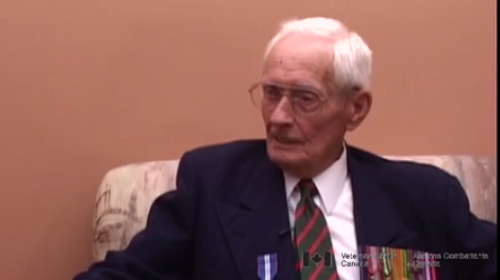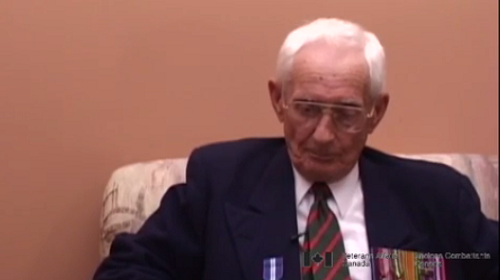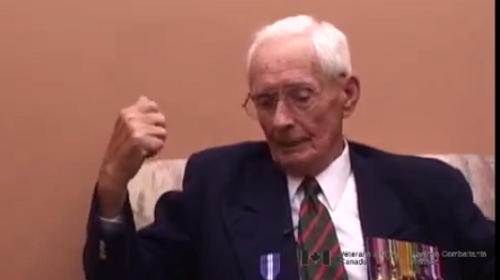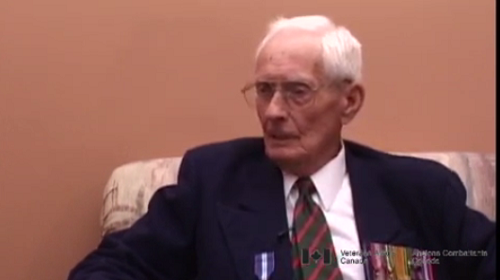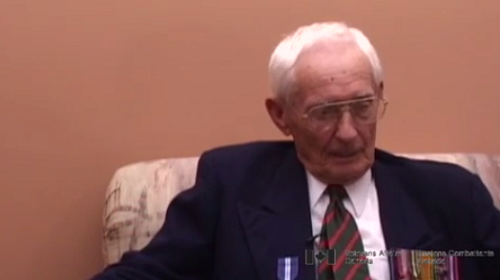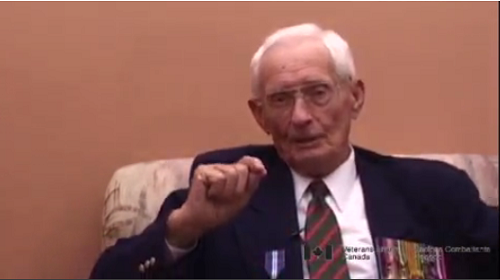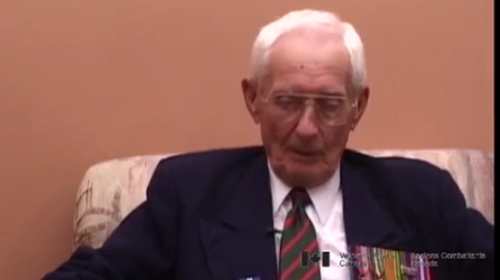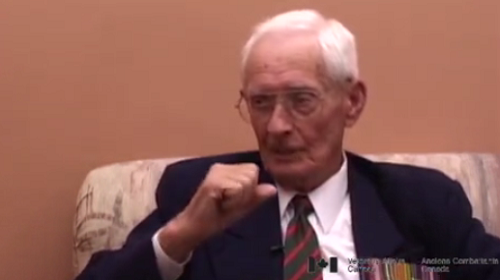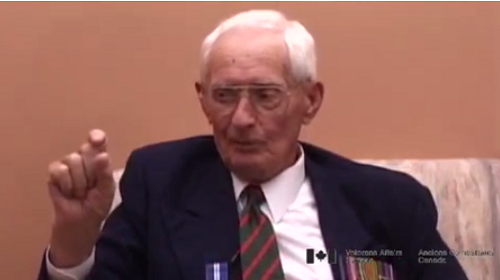Three Small Books
Heroes Remember
Three Small Books
Transcript
I had three books, three small books.
One, about the smallest one, about that long and maybe this thick,
wide and the other two were a little bigger.
One was about maybe this long.
It was a time book that the Jap foreman had.
So we relieved him of the book.
Took it from him when he'd fall asleep on night shift.
I just took it from him.
And when he woke up his book was gone
and nobody was gonna go and tell who took it.
So he lost his book and I got the books yet.
They're in my possession yet.
They were translated and put in big packs, in groups,
about this thick, big sheets, for the trials.
So I had many of their names and
the dates and that as close as possible and
I had to sign, they had to bring a notary to the hospital and witnesses,
and I would sign each one of these group of books.
I think it was six or seven. So they could use them officially.
So that's how I got them back.
I hid them, there was a brace beam that way on,
there was a short ledge out over the roof,
but it was down about three or four feet lower than the rest.
So they had brought some American prisoners in
that were just fresh prisoners, caught by the navy.
So they'd put these fellows up on top,
painting the roof green and light and dark and bamboos
so it would look like the ground from the air.
So when this raid came up and the Japs screamed for the Americans
to get off the roof this pretty stout fellow, well he just went to the edge,
so he just jumped down on this here roof and it was just one ply of,
like a reinforced cement, but it was only about that thick.
Well he smashed right through to here. He caught himself I guess.
So when he broke clear and got to get out of there,
when he looked down like that, here's this thing is now open to the surface
and here was these three books.
So he had the presence of mind to grab them and put them in his clothes.
So when I seen this roof broken when I came from down in the mine,
holy Moses, the Japs' got these books. So I said I'll be caught for sure.
So anyway, but it was an American that had found them.
So I found out who was the guy that fell through the roof
and he was walking around for exercise so I got walking with him.
And I said, “Are you the one that broke through the roof?”
He said, “Yes.” And I said, “What did you see when you looked down,
looked down through that hole?”
And he stopped and he looked at me this way.
He said, “Are these books yours?”
I said, “Yes.”
“Well,” he said, “I've got them.”
So he passed them to me. I arranged for them to be in another place
and I got my books back.
Description
Mr. Ross describes keeping a diary, how the diary was accidentally found by an American POW, and how the books were returned to him.
Lancelot ‘Lance’ Ross
Mr. Lance Ross was born in Lac-Megantic, Quebec on October 7, 1911. His father was a carpenter and a family farmer. Mr. Ross went to work at the age of fourteen, holding many odd jobs that paid $1.00 to $1.50 a day. Impatient with the wait for joining the air foce, Mr. Ross joined the army and went overseas to Hong Kong. He was captured and spent time in POW camps. During this time, Mr. Ross kept a diary that was used for the prosecution of Japanese war crimes. After the war, he was active in getting recognition for Hong Kong Veterans.
Meta Data
- Medium:
- Video
- Owner:
- Veterans Affairs Canada
- Duration:
- 3:25
- Person Interviewed:
- Lancelot ‘Lance’ Ross
- War, Conflict or Mission:
- Second World War
- Battle/Campaign:
- Hong Kong
- Branch:
- Army
- Units/Ship:
- Royal Rifles of Canada
- Rank:
- Sergeant
- Occupation:
- Platoon Sergeant
Related Videos
- Date modified:



